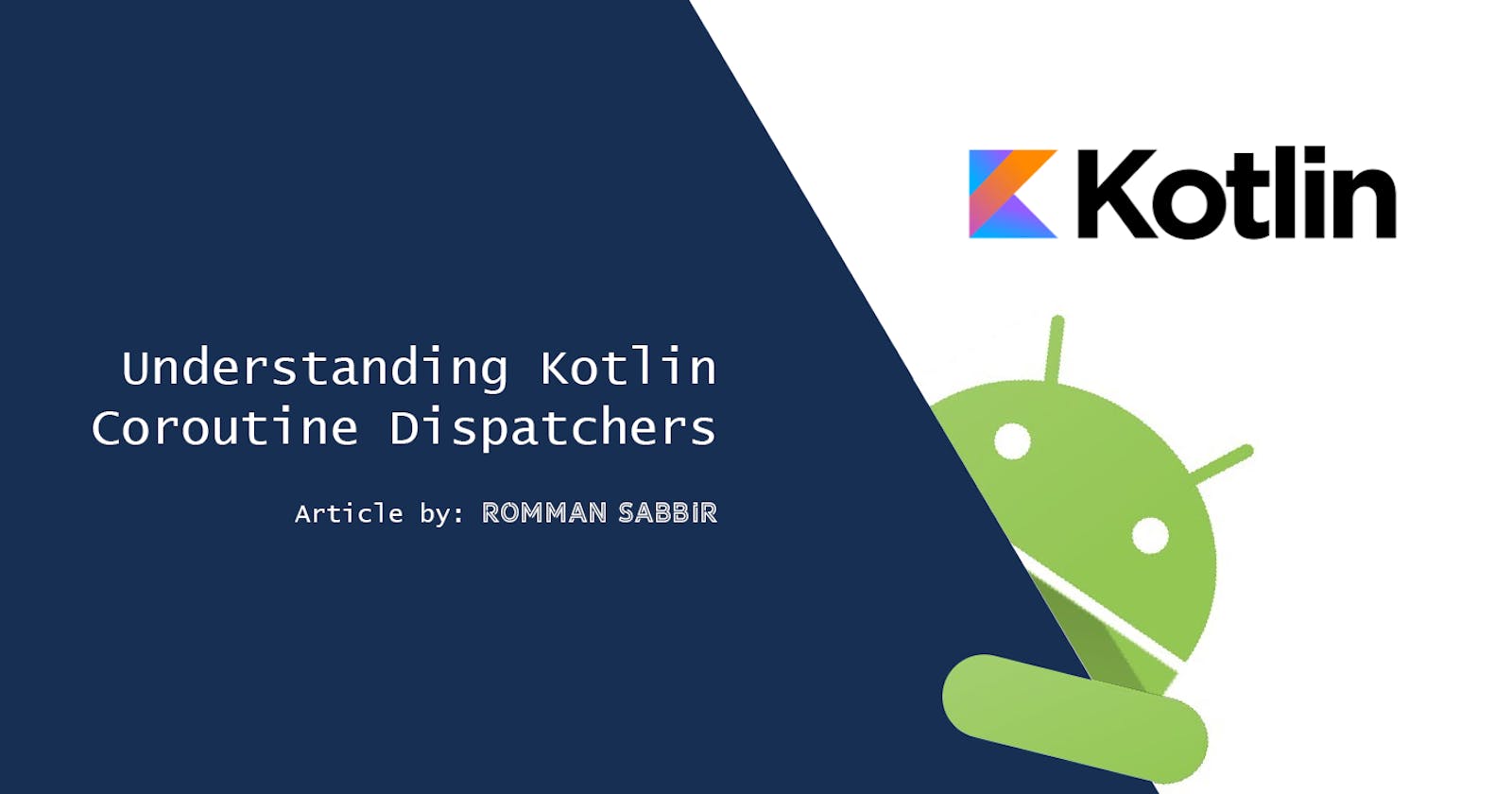Understanding Kotlin Coroutine Dispatchers
A Guide for Android Developers to understand Kotlin's Coroutine Dispatchers
Introduction
In this article, we will delve into the realm of Dispatchers in Kotlin Coroutines, exploring their significance in Android development and their role in efficiently managing threads for coroutine execution. As an essential topic for Android interviews, understanding Dispatchers are crucial for building responsive and performant Android applications.
Dispatchers: Guiding Coroutines Threads
Before we explore the types of Dispatchers available, it's important to comprehend how Dispatchers aid Coroutines in determining the appropriate thread for task execution. Much like Schedulers in RxJava, Dispatchers play a pivotal role in shaping the behavior of Coroutines by influencing the thread on which a task is performed.
Commonly Used Dispatchers
In the world of Kotlin Coroutines, four primary Dispatchers are frequently employed:
Dispatchers.Default:Purpose: Ideal for CPU-intensive tasks.
Example Use Cases:
Heavy calculations like matrix multiplications.
Operations on large in-memory lists (e.g., sorting, filtering).
Bitmap-related operations on existing in-memory images.
Equivalent to:
RxJava'sSchedulers.computation().
launch(Dispatchers.Default) {
// Your CPU-intensive task
}
Dispatchers.IO:Purpose: Suited for disk or network I/O-related tasks.
Example Use Cases:
Network operations, such as making a network call.
File operations like downloading, moving, reading, or writing.
Database queries and Shared Preferences operations.
Equivalent to:
RxJava'sSchedulers.io().
launch(Dispatchers.IO) {
// Your IO-related task
}
Dispatchers.Main:Purpose: Designed for running a coroutine on the main thread of Android.
Example Use Cases:
Performing UI-related tasks.
Small tasks involving operations on smaller in-memory lists.
Equivalent to:
RxAndroid'sAndroidSchedulers.mainThread().
launch(Dispatchers.Main) {
// Your main thread-related task
}
Dispatchers.Unconfined:Purpose: A coroutine dispatcher not confined to any specific thread.
Characteristics: Executes the initial continuation of a coroutine in the current call frame and lets the coroutine resume in whatever thread is used by the corresponding suspending function.
Use Cases: Employ when the coroutine's execution thread is not a critical concern.
launch(Dispatchers.Unconfined) {
// Your task for which you do not care about the thread
}
Conclusion
In conclusion, Dispatchers in Kotlin Coroutines play a crucial role in managing the execution threads of coroutines. Understanding when to use each dispatcher is essential for developing efficient and responsive Android applications. By leveraging Dispatchers.Default, Dispatchers.IO, Dispatchers.Main, and Dispatchers.Unconfined, developers can optimize their coroutine-based code for various tasks, ultimately enhancing the overall performance of their Android projects.
That's it for today. Happy Coding...

